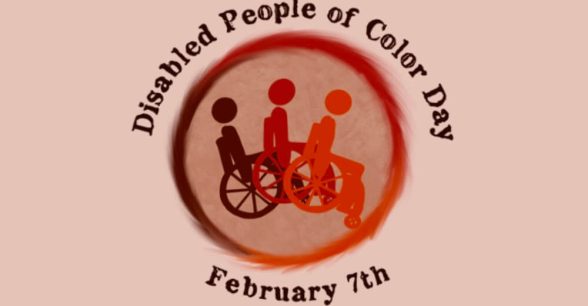‘Tis the Season for Inclusive Holiday Festivities
‘Tis the season for parties, from office holiday parties, to those hosted by friends and families, to charity galas. And we all know what comes with large public shindigs: Inevitable accessibility problems. When events designed to make people feel like members of a beloved community, don’t create a welcoming environment for disabled people, the results can be very isolating.
Parties usually aren’t inaccessible by design. Instead, parties that feel exclusionary are a symptom of larger social issues that keep disabled people out of public life. For work parties, charity events, and the like, often the problem is the decision to hold the event in an inaccessible venue — because while the Americans with Disabilities Act (ADA) may be over 27 years old, many buildings continue to be inaccessible. Sometimes it’s challenging to find an accessible venue, but unfortunately, many event planners don’t bother to look.
When organizers proactively think about accessibility, they may not think about the full scope of access needs. Simply being advertised as ADA compliant doesn’t mean a building really is ADA compliant, as any wheelchair user who’s encountered a stack of storage boxes in the lone accessible stall of the restroom can testify. And abiding by letter of the law doesn’t always match up with the spirit — having to go to the back of a building to access a ramp isn’t very welcoming, for example, and a poorly laid-out dance floor can prevent some disabled people from joining the fun.
Accessibility issues get even worse when parties are held in private homes. It’s challenging to determine the percentage of housing that’s ADA compliant; many homes were built prior to 1990, and not all housing is subject to the ADA or the Fair Housing Act. Many people — including disabled people — live in inaccessible homes because other options aren’t available, or are unaffordable. Whether a small business is hosting a party at someone’s home or someone is planning a friends and family event, chances are high that a home will be fully or partially inaccessible for some potential guests.
Making your parties accessible
So, what makes a party accessible? It’s something to be thinking about whether your office is gearing up for a holiday event or you’re getting ready to host a New Year’s Eve party. A few steps can make events much more disability-friendly — and remember that each party you host can be a learning experience for future events.
Is your venue accessible?
If it’s a rental venue, don’t just call to confirm accessibility and hope for the best. Check it out in person. And if you don’t have a mobility disability, it can be helpful to enlist the expertise of someone who does, as they may spot accessibility problems you might not notice. Does the venue have stairs or other barriers that make it difficult or impossible for wheelchair users and other people with mobility impairments to get in and move around? Does it have accessible bathrooms, and are they in working order? Are the hallways sufficiently wide? Can furniture be rearranged to comfortably accommodate wheelchair users? If there’s a stage, does it have a ramp? Can it be reached easily via accessible public transit? I
If you’re hosting at your residence and you know your house has accessibility issues, think about teaming up with a friend who has a more disability-friendly pad, or explore ways to make it more accessible — rental ramps are available, for example.
Can you offer additional accommodations?
Some people like, or need, a relaxing space in case they feel overloaded. Is there a room that can be designated as a quiet or calm space? Others may appreciate a private space that isn’t a bathroom for things like administering medication. Have you considered issues like scent or noise sensitivity? If you’re hosting at home, could pet allergies be an issue?
Is the food inclusive?
We live in an era with an increasing awareness of food allergies, but it can be tough to predict every single possible one. But whether catering or using a potluck approach, you can head some problems off at the pass. Consider asking people to refrain from using peanuts and tree nuts, two common allergens. Clearly label dishes with all ingredients so people don’t have to ask. When coordinating food, make sure you have vegan and gluten-free options available — vegan food can address not just vegans and vegetarians, but those with egg, milk, or shellfish allergies. Keep people on hand to answer questions from those who have trouble reading the cards or have additional concerns. Provide non-alcoholic drinks for those who can’t or don’t drink, and make them comparable to the alcoholic ones so they don’t feel singled out — there are lots of great mocktails, fruit drinks, and other options.
Do you have plans for handling remarks and toasts?
D/deaf and hard of hearing people may feel excluded at an event where people are getting up to deliver toasts and remarks. If you know someone on the guest list has a hearing impairment, plan on having options available, such as an interpreter, or a printed version of remarks. If an event is a gala or large corporate event, CART (Communication Access Realtime Translation) should be included along with an interpreter.
Being proactive about inclusion sends a message that all people are welcome. After all, festivities are a whole lot more festive when attendees don’t have to literally fight for their right to party.
About Rooted In Rights
Rooted in Rights exists to amplify the perspectives of the disability community. Blog posts and storyteller videos that we publish and content we re-share on social media do not necessarily reflect the opinions or values of Rooted in Rights nor indicate an endorsement of a program or service by Rooted in Rights. We respect and aim to reflect the diversity of opinions and experiences of the disability community. Rooted in Rights seeks to highlight discussions, not direct them. Learn more about Rooted In Rights



